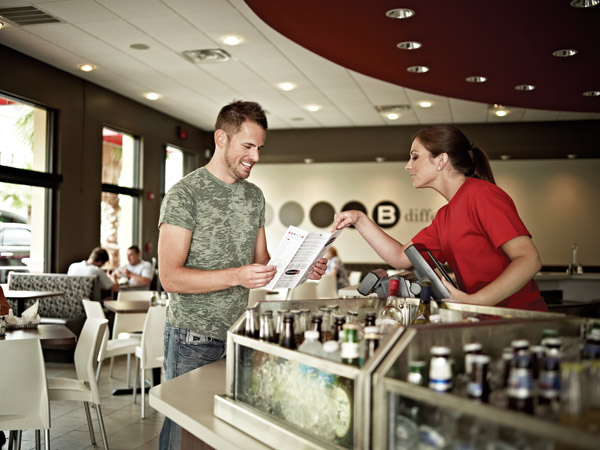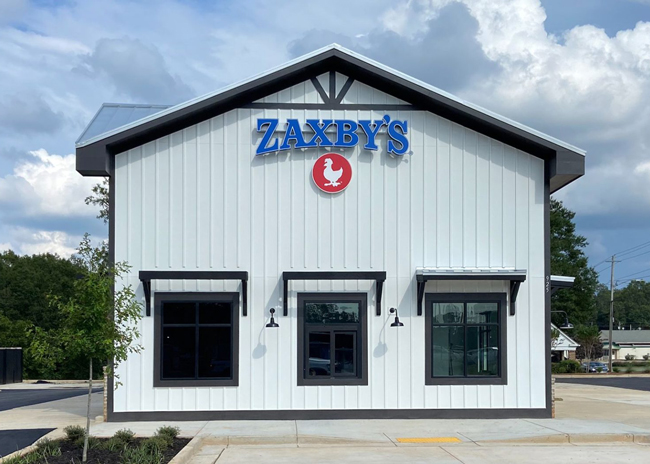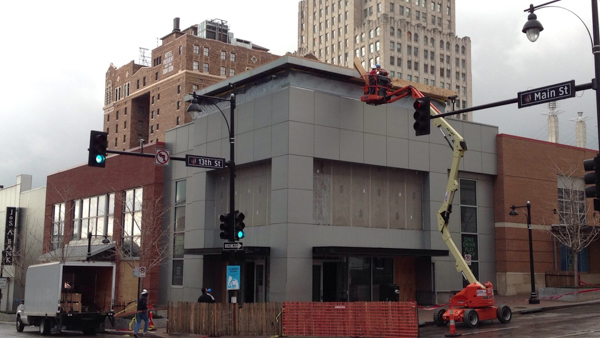Michael Haith, chairman of RainTree, an outsource franchise sales agency, counsels brands to offer sales webinars and tells them what potential partners can learn about each other. Potential franchisees learn about the brand's culture during the webinar, and the brand learns about the candidates in subsequent follow-up. When there is a match and satisfactory financials, the restaurant chain grants a franchise.
"We do mutual due diligence on whether there is a cultural match," Haith says. "Will they fit in with other franchisees? Will they see the world the same way the founders do? That is absolutely our number-one goal."
Virtually all restaurant brands using webinars as part of their franchise development strategy share this same two-fold goal. The content should educate candidates about the brand, particularly its culture, with the goal of securing the ideal partner. While some companies use trade shows and traditional advertising and promotion to develop leads, they all employ the same call to action: getting candidates to attend a webinar, which becomes the keystone of the sales pitch. The technology allows franchisors the ability to reach large groups of people efficiently and economically. Once you get candidates "in the funnel, the webinar keeps them engaged," Haith says.
A webinar should be sincere. "We want everyone to walk in with their eyes wide open. It's not so much of a sales process as it is an educational process," says Haith. "Here are the realities of running this business. Here's what your expectations should be. Here's what it takes to be successful. You're not going to be flying a jet in the first week of business, but through hard work you can build something that will provide for your needs."
Andrew Erskine, director of marketing for Management 2000, a franchise consulting company, agrees. "There are people who are looking for a franchise opportunity to better themselves. The value the webinars bring is that the franchise companies can tell these potential candidates how the brand is going to help them meet their personal goals."
Potential candidates usually have done some research before attending a webinar. The company's website provides some information about a brand — although Haith and Erskine counsel against putting too much information on the site, as it tends to overwhelm people. Franchisors should also diligently monitor how others talk about the brand in social media, Erskine says. "If [companies] don't have great brand-chatter management, reputation management really, they can hurt the franchise
development process," he says.
Most brands agree on the content the webinar should cover up to the point of divulging financials. Standard facets of the presentations include the concept, theme, personality and the brand's benefits and the challenges. Essentially, including these aspects helps create a mini online discovery session. It's the numbers discussion that differs. Some brands believe in sharing all the Item 19 data they can legally discuss. Item 19 is the statement about earnings, costs and factors affecting financial performance that is filed in the brands' Franchise Disclosure Document (FDD). Others do not discuss money at all, choosing to wait until they get to the stage of providing the FDD to the candidate.
Erskine believes in providing Item 19 information. "The corporations that are not doing that, it hurts them in the long run," he says. "A lot of attorneys do not want their clients to divulge the information, but we strongly believe that our franchise clients need to do that. It helps distinguish them against the competition."
Haith holds the opposing view, believing that franchisors should not go into Item 19 on the webinar. His reasoning is that that part of the conversation should come later.
Frequency of holding webinars ranges from once or twice a month to once or twice a week for chains in aggressive growth mode. Most tend to be live events in order to facilitate an interactive Q&A, but a few companies will also offer recorded webinars to expand the convenience of listening anytime. Usually, an hour will suffice: 45 minutes for the main content portion and 15 minutes for questions at the end. Franchisors tweak the content over time to respond to the interests of attendees and to better address commonly asked questions.
Here's a look at how four growth chains make sales webinars work for them.
Burger 21 (Front Burner Brands)
HQ: Tampa
Units: 12 in 5 states; 20 more in 7 states by the end of the year
Burger 21 has a challenge: How do you attract franchisees in the crowded better-burger category? You address the issue right off the bat in a sales webinar, according to Dan Stone, vice president of franchise development for Front Burner Brands, the parent of Burger 21. Stone kicks off the discussion with an overview of the burger segment and what makes Burger 21 unique. "The goal is to educate [potential franchisees] on the business opportunity," he says. He discusses financials, brand innovation and growth plans.
Stone also tells webinar attendees what type of prospects the company looks for to grow the brand. They must have a business background, restaurant experience preferred but not required, and a commitment to customer service, as well as the financial requirements. He wants to know why they want to be a franchisee. Is it a lifestyle change? Do they have an entrepreneurial spirit that is not being satisfied currently? Is it because of money? "It's usually a blend of reasons," he explains. "We're an owner-operator concept, so we don't want passive investors that are not engaged with the brand. We want our franchisees to have their finger on the pulse of their business at all times."
Finding out about the attendees occurs in follow-up discussions. Stone's team uses email and telephone to determine serious interest and begin the next steps. The "discovery process" consists of a series of templates that validate interest. If all goes well, the company invites the candidate(s) to Tampa for face-to-face meetings with the executive team. "It's not a relationship we take lightly," he says. "If we believe either party has heartburn, we'd rather not move forward and offer a franchise agreement."
Listening to a sales webinar may be a potential investor's first introduction to Burger 21, or it may be a step in the process. The company participates in trade shows throughout the year. The company encourages candidates who express an interest at a show to attend a webinar. Stone says they schedule a webinar a week after a show so as not to lose momentum.
The company website also helps attract candidates. Both methods — trade show and website — represent integral parts of the sales strategy to lead potential franchisees to the educational webinars.
The live webinars feature healthy Q&A sessions. Stone often gets questions about financing, about the benefits of being a multi-unit developer or about the rights of first refusal on additional units if starting with one. A question a brand cannot answer, because of FTC regulations, is information about profit margins or return on investment. "It would be an earnings claim," he explains. "They have to ask an existing franchisee. It's probably one of the most commonly asked questions — which I can't answer."
Unlike some of his fellow franchisors, Stone does talk about some numbers during the webinar. He provides average numbers from the units in terms of gross sales, then gives percentages for costs such as cost of goods sold, hourly labor, and the like. "We know our candidates want to hear that, so I dive in during the first few minutes."
Stone cautions that a webinar should be fast-paced and that the host should have the necessary presentation skills. The content must be engaging, he says. He adds that it is important to use a reliable webinar vendor and that access, entry and attendance are easy and user friendly. "Webinars require maintenance and time," he counsels. "It's not as easy as turning on a switch."
Culver's (Culver Franchising System)
HQ: Prairie du Sac, Wis.
Units: 509 in 22 states (501 are franchised)
"Our webinars are geared toward telling the Culver's story," says Tom Goldsmith, director of development for the chain known for its butter burgers. "If they're interested, we'll talk to them some more. If not, we probably won't hear from them again." It's an efficient way of weeding out people who are not strong candidates, he says, adding, "We're not twisting arms."
 Culver's has been holding webinars for two years, often twice a week. This summer, the chain held to a webinar schedule of 1 every 7 to 10 days, rotating among 10 a.m., 2 p.m. and 6 p.m. time slots. Content for the one-hour sessions focuses on communicating the family values of the company as well as the training provided for franchisees. Culver's training program is 16 weeks, compared with the usual 4 to 6 weeks. The chain offers franchise applications at the end of the webinar. The presentations do not discuss financials. Goldsmith says that prospects initiate 99 percent of contact, usually through the company website.
Culver's has been holding webinars for two years, often twice a week. This summer, the chain held to a webinar schedule of 1 every 7 to 10 days, rotating among 10 a.m., 2 p.m. and 6 p.m. time slots. Content for the one-hour sessions focuses on communicating the family values of the company as well as the training provided for franchisees. Culver's training program is 16 weeks, compared with the usual 4 to 6 weeks. The chain offers franchise applications at the end of the webinar. The presentations do not discuss financials. Goldsmith says that prospects initiate 99 percent of contact, usually through the company website.
Culver's, which turned 30 years old in July and recently passed the 500-unit milestone, hopes to open 35 new restaurants this year. The preferred growth rate is one franchise unit at a time. Ownership will be split between existing and new franchisees, thus the need for a sales development strategy that identifies serious candidates.
"What sets us apart from the competition is having the owner-operator present and engaged with the restaurant," says Mark Lindquist, Culver's franchise development manager. "When franchisees have proven themselves, we allow them to go on to a second and third restaurant." They key decision factor for granting additional franchises, he adds, is the franchisee's development of a capable team.
Auntie Anne's
HQ: Lancaster, Pa.
Units: 1,550 worldwide (all but 16 franchised)
Linda Engels, franchise development specialist for Auntie Anne's, the chain of pretzel bakeries, says the company's sales webinars, titled "Getting Started with Auntie Anne's Franchising," attract the concept's desired audience. "We create partnerships in a variety of ways," she says. "Our webinars have proven to be an entry for some individuals. Owning a restaurant franchise isn't for everyone. If someone is willing to research the opportunity, take the time to attend the webinar and ask questions, they are likely to be engaged and take the next steps to become a franchise owner."
At the same time, she says, the webinar presents a good way for people who are not yet ready to become franchise partners to learn that and step back until the time is right.
The content of Auntie Anne's webinars has changed over time. The team listens to the questions asked and adapts content accordingly when similar questions arise frequently. The overall goal of the one-hour online sessions is to explain the brand's business model, including costs, timing and the procedure involved in becoming a franchisee — and to share some franchisee success stories.
As at Culver's, live webinars are scheduled at different times of the day to reach audiences with different time requirements. In addition, a recorded version provides a convenience factor for listening but without the advantage of a live Q&A.
Engels says Auntie Anne's promotes its webinars in the franchise section of the company's website to attract attendees, as well as in online advertising and social media in targeted geographic regions. Webinars are a tactic in the overall franchise sales marketing plan that also includes traditional advertising as well as relationships with local chambers of commerce.
The company is pleased with its results. "You need a multifaceted strategy that reaches people in different ways," Engel says. "We've found the webinars a great way to leverage technology and complement in-person, in-market visits."
Hurricane Grill & Wings
HQ: West Palm Beach, Fla.
Units: 59 in 11 states (90 percent franchised) expanding to 72 by the end of the year
"Webinars are perfect for prospects who need more information about the brand before they are willing to engage in a discussion with us. They also serve as a follow-up tool after we've spoken to candidates," says Kevin Kruse, chief development officer at Hurricane Grill & Wings. "I believe most of our attendees are the type of candidates we are looking for. They are serious enough about Hurricane Grill & Wings to invest an hour of their time."
In developing its webinar content, Hurricane Grill & Wings provides not just a snapshot of the history and growth of the concept, it also focuses on communicating the company's unique corporate culture. According to Kruse, the sales team discusses the company's focus on freshness and flavor and the beach-themed vibe.
Content is frequently updated and kept fresh as well. For example, as new menu items are developed, they are added to the webinar discussion agenda along with any new initiatives that the company offers to help promote their franchisees' success.
Webinars are typically presented every two weeks and, like most, last between 45 minutes and an hour. They are working well, Kruse says. "We believe they are successful in motivating franchise candidates to move to the next step," he explains, adding that the information is given in an entertaining, low-pressure way and the experience is the start to building a trusting relationship.



